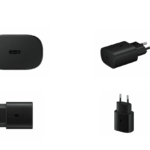
Just a few days ago we heard about the EU regulations on reusable batteries. Additionally, it gave the greatest holdout for USB-C to Apple’s Lightning Connector. It was instructed to undergo a change before 2024. The change should be the one that everyone could use i.e., the standard. India is one of the largest consumers of the electronics market. Reportedly, the Indian government is all set to introduce its own decree for mobile phones to support USB-C. Furthermore, it is also considered an alike standard for wearables as well.
For some months, the Bureau of Indian Standards (BIS) has grabbed the attention. It is going to follow some kind of similar guidelines as set by the EU. The motive behind the regulations by both authorities is the reduction of e-waste as well as customer interest. Rohit Kumar Singh, Secretary to the Department of Consumer Affairs, mentioned that BIS could demand that all future wearables should be transported with support for a standard charging solution. Such regulation can affect fitness trackers, wireless earbuds, smartwatches, and headphones.
Just by considering the smartwatches, we come to know that each company has its own standard for charging the device. For instance, some devices use pogo pins while others rely on wireless charging. But still, there are a few common grounds between various brands i.e., the use of magnets. As of now, the exact solution has not been showcased by the regulators of the Indian market. We can expect something similar to the tech adopted by Apple Watch or the Galaxy Watch 5.
A truly novel approach for wearables at this time would be quite surprising. Since it could cost much as well as cause manufacturer pushbacks. Small changes would be easy to go by. Since they will be beneficial for everyone. Do keep in mind that a standard indicates that consumers will be virtually using one charger for every device. Though the change won’t be that sudden. As of now, no dedicated timeline has been specified. The steps similar to the EU appear like progress in the right direction.
Research Snipers is currently covering all technology news including Google, Apple, Android, Xiaomi, Huawei, Samsung News, and More. Research Snipers has decade of experience in breaking technology news, covering latest trends in tech news, and recent developments.